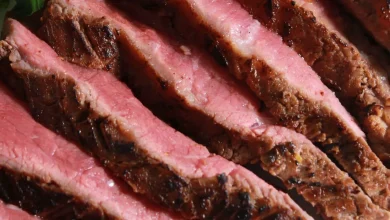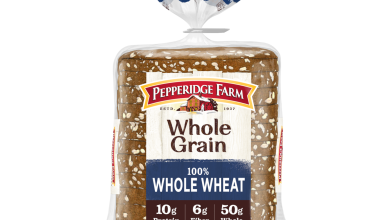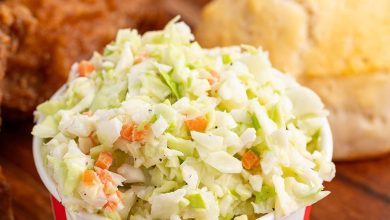Japanese Dried Chestnuts: Nutritional Benefits & Delicious Uses in Recipes
Japanese Dried Chestnuts: Nutritional Profile & Health Benefits
Japanese dried chestnuts are a nutritious and versatile ingredient that can add both texture and flavor to a wide variety of dishes, from savory meals to baked goods and desserts. Known for their rich, slightly sweet taste and soft, chewy texture, these chestnuts offer an array of essential nutrients that contribute to a balanced and healthy diet.
Nutritional Information:
Japanese dried chestnuts are dense in energy and provide a great source of complex carbohydrates, vitamins, and minerals. Below is a breakdown of their nutritional content:
| Nutrient | Amount per 100g |
|---|---|
| Energy | 360 kcal |
| Protein | 5.25 g |
| Fat | 1.24 g |
| Saturated Fats | 0.18 g |
| Carbohydrates | 81.43 g |
| Fiber | 0.0 g |
| Sugar | 0.0 g |
| Calcium | 72.0 mg |
| Iron | 3.38 mg |
| Magnesium | 115 mg |
| Phosphorus | 169.0 mg |
| Potassium | 768.0 mg |
| Sodium | 34.0 mg |
| Zinc | 2.57 mg |
| Copper | 1.312 mcg |
| Manganese | 3.711 mg |
| Selenium | 0.0 mcg |
| Vitamin C | 61.3 mg |
| Thiamin (Vitamin B1) | 0.802 mg |
| Riboflavin (Vitamin B2) | 0.38 mg |
| Niacin (Vitamin B3) | 3.5 mg |
| Vitamin B6 | 0.659 mg |
| Folate (Vitamin B9) | 109.0 mcg |
| Vitamin B12 | 0.0 mcg |
| Vitamin A | 4.0 mcg |
| Vitamin E | 0.0 mg |
| Vitamin D2 | 0.0 mcg |
Allergen Information:
Japanese dried chestnuts are naturally free from common allergens such as gluten, dairy, nuts, and soy. However, as with all dried fruits, it is always important to check for any added preservatives or allergens during processing. Individuals with specific sensitivities should consult product labels carefully.
Dietary Preferences:
- Vegan & Vegetarian: Japanese dried chestnuts are an excellent choice for both vegan and vegetarian diets as they contain no animal products and are a good source of plant-based nutrition.
- Gluten-Free: These chestnuts are naturally gluten-free, making them a safe option for those with gluten sensitivity or celiac disease.
- Low in Fat: With only 1.24 grams of fat per 100g, they are a great snack for those following low-fat diets.
- High in Carbohydrates: Due to their high carbohydrate content (81.43g per 100g), Japanese dried chestnuts provide a long-lasting energy boost, making them ideal for athletes or anyone needing a quick energy source.
- High in Fiber: Although this particular variety contains no fiber, they can still be an important part of a fiber-rich diet when consumed alongside other high-fiber foods.
Health Benefits of Japanese Dried Chestnuts:
-
Rich Source of Energy: Packed with carbohydrates, dried chestnuts provide an excellent source of energy for physical activities and mental focus throughout the day.
-
Supports Immune Health: With a significant amount of Vitamin C (61.3 mg per 100g), dried chestnuts can help boost the immune system, aiding in the protection against colds and other infections.
-
Bone Health: Dried chestnuts offer a good supply of minerals like calcium, magnesium, and phosphorus, which contribute to the maintenance of strong bones and teeth.
-
Heart Health: The low-fat content and high potassium (768.0 mg) help support healthy blood pressure levels, which can reduce the risk of cardiovascular diseases.
-
Rich in Antioxidants: The presence of Vitamin C, along with small amounts of Vitamin E and other nutrients, offers antioxidant properties that can help protect the body from oxidative stress and free radical damage.
-
Helps with Metabolism: With a decent amount of B vitamins such as Thiamin, Niacin, and Vitamin B6, these chestnuts support energy metabolism and nervous system health.
-
Digestive Health: Although they have no fiber, chestnuts can still contribute to gut health when consumed as part of a balanced diet that includes other fiber-rich foods.
Tips for Incorporating Japanese Dried Chestnuts into Your Diet:
- Snack Option: Enjoy a handful of dried chestnuts as a nutritious snack, perfect for a quick energy boost or a satisfying treat.
- Baked Goods: Use chopped dried chestnuts in muffins, cakes, or cookies for added flavor and texture.
- Salads & Stir-Fries: Add whole or chopped chestnuts to salads, stir-fries, or grain bowls to elevate the dish with a unique flavor.
- Soups and Stews: Japanese dried chestnuts can be incorporated into soups and stews, adding richness and a slight sweetness that complements savory ingredients.
Conclusion:
Japanese dried chestnuts are not only a delicious addition to a variety of dishes but also provide numerous health benefits. With their rich nutritional profile, including high amounts of carbohydrates, vitamins, and essential minerals, they make an excellent choice for those seeking a nutritious, energy-dense food. Whether you’re looking to boost your immune system, support your bone health, or simply enjoy a satisfying snack, these chestnuts offer a flavorful, versatile, and health-boosting option for all types of diets.








